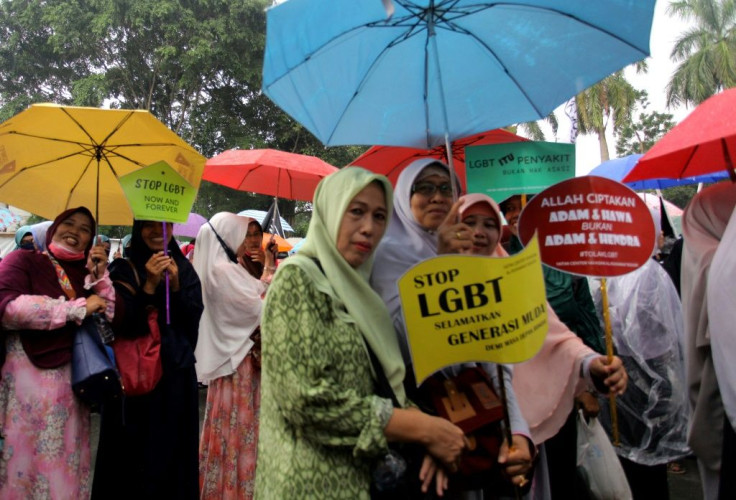Indonesia Spark Outrage With Ban On LGBTQ+ Job Seekers

The Indonesian Ministries of Defense and Trade and the Attorney General’s Office (AGO), according to The Jakarta Post, have listed job advertisements with the condition that any applicants “must not be mentally disabled and not show sexual orientation or behavioral deviations.”
This has resulted in outrage from people who are LGBTQ+ and are seeking employment in the predominantly Muslim country.
AGO spokesman, identified as Mukri, said, “I mean, we just want the normal ones, we don’t want [to accept] the odd ones” in reference to any job applicants. The Jakarta Post reported that the AGO previously categorized LGBTQ+ people as mentally ill.
In recent years, Indonesia has seen an uptick in cases that target people who identify as LGBTQ+. Indonesia’s president, Joko Widodo, under pressure from human rights groups and from Australia, recently delayed a bill banning same-sex activity in addition to all sexual interactions outside of traditional marriage between a man and a woman.
The executive director of Amnesty International Indonesia, Usman Hamid, has called the ban on employment a “hate-based policy”. The commissioner of the state-run Indonesian Ombudsman, Ninik Rahayu, spoke of an investigation that found the AGO and the defense and trade ministries' actions to be discriminatory.
He added that other ministries had made moves to remove the bans but added, “I heard that the Trade Ministry has already changed it. The AGO, however, has maintained the requirement.”
Throughout history, the bulk of discrimination against “those different” was usually based on religious intolerance. The Roman Catholic Church’s persecution of same-sex activity in the European Renaissance of the 15th and 16th centuries is a prime example.
Another is present-day Iran, under Islamic Law, that has a strange policy of being quite accepting of transgendered people but considers homosexual activity a crime punishable by death for men and lashings for women.
The history of discrimination in the United States has largely been confined to racial biases most notably toward the ancestors of African American slaves who endured decades of “Jim Crow” laws designed to deprive people of color of basic human rights. The well-documented struggles for African American civil rights in the southern U.S. during the 1950s and 1960s became a springboard for gays and lesbians to assert their rights as well in the 1970s and 1980s.
Hamid summed it up by saying, "Indonesia should be trying to recruit the best and brightest to its civil service, not applying arbitrary and hateful restrictions," he said. "This is against both Indonesia's constitution and its obligations under international human rights law.”
A crucial milestone may be in December, when the new parliament convenes to vote on a bill that bans all sex outside marriage.
© Copyright IBTimes 2025. All rights reserved.





















